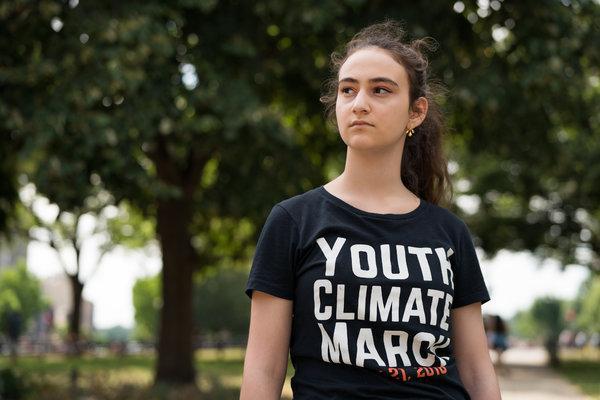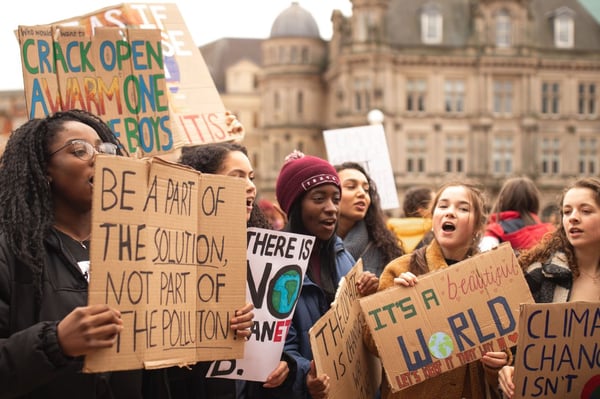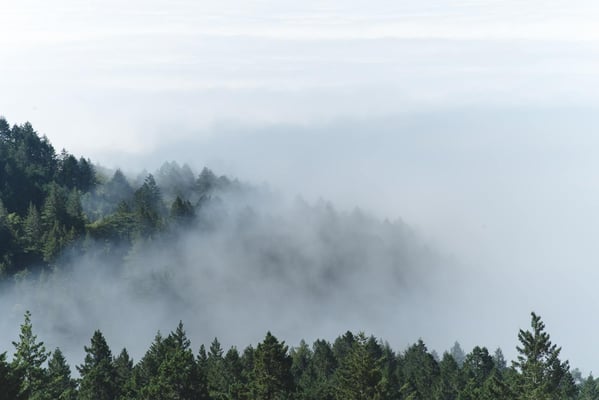
Writing environmental journalism requires you to confront a massive problem—climate change—and zoom in on one captivating angle, element, or issue. From deforestation to droughts, fracking to floods—there is no shortage of material to investigate. At this critical time, it’s the words and actions of Generation Z that are galvanizing leaders around the globe, forcing them to pay attention, urging them towards positive change.
It’s for this reason that we chose young climate writer and activist, Jamie Margolin, as Guest Judge for February’s Environmental Journalism competition. Below, Jamie shares insight into the process of starting her organization, Zero Hour; organizing her community around issues of climate justice; and putting pen to paper to create her first book, which comes out in June.
When did you decide that you wanted to devote your time to climate action? And how did you start your organization Zero Hour?
In the summer of 2017, inspired by the Women’s March and my local environmental organizing experiences, I attended a Political Speech and Communications course for teens at Princeton University. That was also a summer full of natural disaster after natural disaster, and thick smog covered Seattle thanks to stronger-than-usual wildfires up North in Canada.
That was when I finally decided to take the plunge.
I had social media friends, like Nadia Nazar, also willing to take action. Madeline Tew and Zanagee Artis also joined, who were friends from Princeton camp, and they are now two core team leads.
For a while, we did tons of visioning and brainstorming, struggling to find our footing. Soon, we brought on some adult mentors, and we reached out to frontline communities who we knew had to be at the center of the movement, like some of the youth from the Standing Rock tribe who famously let the #NODAPL fight. They were super excited by the idea, and some of the youth, like Tokata Iron Eyes and Danny Grassrope, ended up speaking at The Youth Climate March in Washington, D.C. on July 21st, 2018.
Since then, we’ve organized many actions, lobby days, protests, and have expanded into a full-fledged organization.
Climate justice is closely tied to other systems of oppression. It’s not a matter of choosing between, say, Black Lives Matter or Climate Justice. Climate Justice is Black Lives Matter: 69% of coal plants are built in POC communities; 20 thousand people die from air pollution alone each year in the United States, and the majority of those people are people of color (that’s not a coincidence.)
I am a hopeful activist. You can’t motivate the world with one giant existential crisis, but you can motivate them with the hope of a brighter future.

For this writing competition, writers are asked to write a journalistic piece about an environmental issue in their home state, country or neighborhood. How would you suggest writers go about selecting a topic?
Zero in on the topic that means the most to you personally. The most captivating stories are the stories that have an emotional pull. So, find the topic that most deeply affects you, that strikes up the most emotion and passion in you.
What are you looking for in a winning entry?
I am looking for something that is captivating from the beginning, that is written with accessible language (no jargon) and that clearly explains an issue in a way that readers can connect with emotionally. I’m looking for good storytelling, and writing that connects facts and issues with empathy and emotion.

What was it like writing your first book? Can you tell us what it’s about and when we can purchase it?
It was both an exhausting and rewarding process writing my first book. It was a lot of very late nights, writing sessions in classrooms in between working on campaigns and initiatives for my organization, Zero Hour. It was also cathartic, since I got to pour out a lot of the information, emotions, and experiences that I’ve always wanted to tell people about activism and community organizing into the book. Overall, I’m very proud of how the book turned out, and I can’t wait for the world to read it! You can pre-order my book Youth To Power: Your Voice and How To Use It at youthtopowerbook.com. It comes out worldwide June 2, 2020! The book also contains a foreword by the one and only Greta Thunberg. Pre-order for yourself, your friends, and family!





